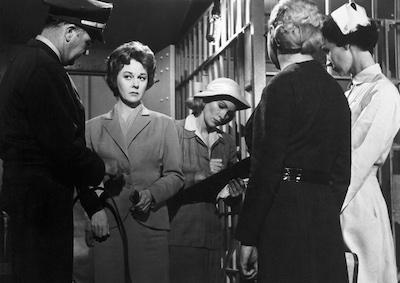Despite the oft-repeated advice to use Western Union instead, Hollywood has always produced its share of message films. For producers such as Dore Schary (Battleground, The Boy with Green Hair), Hollywood had a responsibility to “provoke thought instead of entertainment,” an ethical stance Schary believed wasn’t antithetical to box office success. In Case History of a Movie, his 1950 book on the making of The Next Voice You Hear (1949), Schary insisted “It is no accident that some films are discussing vital questions like anti-Semitism, injustice to Negroes, sex education … We have given the audience what it wants, and now, I think, it wants more thought-provoking pictures.” But whether for profit or uplift, or both, movies about the pressing issues of the day are still often perceived as the vegetable portion on the cinematic plate. But they don’t have to be. Whether working independently or for the B film units of major studios, some filmmakers found that the right mix of exploitation, film noir and pulp went a long way to help the message go down. Rough and tumble, raw and realist, these are message pictures with some edge. This series presents a sampling of the form that feel, in many ways, closer to the contradictions and conflicts of American life than even the most well-meaning prestige production.
You are here
UCLA Film & Television Archive and the Hugh M. Hefner Classic American Film Program present
Telegrams from the Edge: The Message Picture in the Age of Noir

July 14, 2023 -
August 6, 2023
August 6, 2023
Past Programs & Events
| Title | Date and Time | Location | |
|---|---|---|---|
 |
I Want to Live! / Not Wanted |
Sunday, August 6, 2023 - 7:00 pm | Billy Wilder Theater |
 |
The Lawless / The Well |
Monday, July 24, 2023 - 7:30 pm | Billy Wilder Theater |
 |
The Day the Earth Stood Still / The Next Voice You Hear… |
Sunday, July 23, 2023 - 7:00 pm | Billy Wilder Theater |
 |
Shock Corridor |
Friday, July 14, 2023 - 7:30 pm | Billy Wilder Theater |
To report problems, broken links, or comment on the website, please contact support
Copyright © 2025 UCLA Film & Television Archive. All Rights Reserved






 Mobile Navigation
Mobile Navigation
